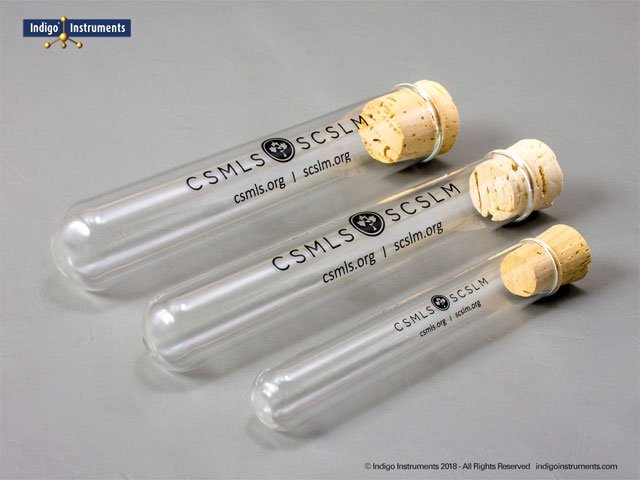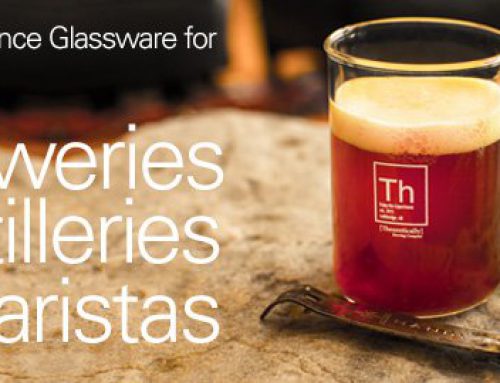Glass test tubes, beakers and flasks are familiar science tools to anyone who ever studied science, especially biology and chemistry. They are practical for mixing, heating and storing liquids and powders. This attribute is popular with kitchen chemists and product packaging people.
Corked Test Tubes
Glass test tubes with cork stoppers in particular have seen a surge in popularity. At home, they are convenient storage vessels and dispensers for spices, condiments, tea leaves, candy sprinkles and coffee beans. Cork stoppers help insure these items maintain their freshness.
Test tubes come in a variety of sizes ranging from as short as 4” (100mm) with narrow openings of a ½” (12.5-13mm) up to 8 inches (200mm) tall and 1.5” wide (38mm). This further adds to their utility for use outside the home and in the work place. You can see a typical range of sizes with their cork stoppers in the image below.

This picture shows all 7 of our thick walled, rimmed borosilicate (“Pyrex”) test tubes with tapered cork stoppers. Rubber stoppers are also available for most of them.
Branded Glass Test Tubes
Unmarked, heavy rimmed versions have proven to be especially popular as hanging flower vases or as flower holding centrepieces at weddings and other functions. Bars have been using them as shooter tubes/shot glasses for decades.
More businesses are now using test tubes as novel packaging for just about anything you can imagine. As one might expect, the ability to custom imprint a company logo is invaluable as a brand advertising tool. Test tubes are particularly well suited for this when both an image and long message are used together.

These large test tubes have a lot of room for custom imprinted company brand logos that won’t fit on other glassware such as beakers and flasks.
Safe Stoppering Glass Test Tubes
Freshly broken glass is extremely sharp and lab glassware is no exception. Our test tubes all come with a reinforced rim so you can insert your cork or rubber stoppers without fear of harm. We’ve never heard of any of ours breaking while being stoppered but this is a definite risk if you’ve bought rimless culture tubes sold as lab test tubes.
We put together this short video to show what we think is the best technique to use when inserting a cork or rubber stopper. It really only applies if you are trying to jam a stopper in so the seal is airtight & the tube contains a liquid you don’t want to leak if you lay the tube on its side. If use the tubes standing up & only need a loose seal, you can safely ignore this.




